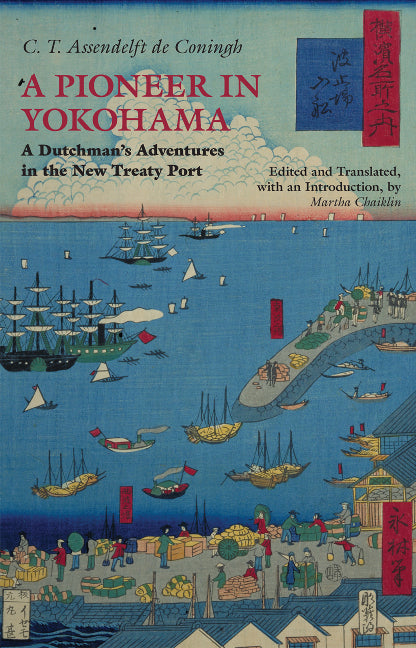In relating the story of his life on the island of Deshima and in the port of Yokohama during the late 1850s, Dutch merchant C. T. Assendelft de Coningh provides both an unprecedented eyewitness account of daily life in the Japanese treaty ports and a unique perspective on the economic, military, and political forces the Western imperial powers brought to bear on newly opened Japan. A general Introduction provides essential historical and cultural background as well as a brief biography of De Coningh; substantial footnotes explain those terms, names, and cultural references that may be unfamiliar to modern readers. Thirteen illustrations are included, as are a chronology of events, a bibliography, and an index.
Martha Chaiklin is Assistant Professor of History, University of Pittsburgh.
A great readI couldnt put it down! A Pioneer in Yokohama truly brings the earliest months of the Japanese treaty port to life. From the brief Japanese 'Gold Rush' to duels and terrorist attacks, from the perils of international commerce to hilarious problems of translation and miscommunication, Dutchman De Coningh's memoir provides vivid insights into both nineteenth-century trade and Yokohamas international community. Moreover, the extraordinary sleuth work done by translator Chaiklin to identify even the most preposterous-seeming events and characters adds the spice of historical confirmation to the drama. . . . A great resource for researchers, classrooms, and casual readers alike." Sarah Thal, University of Wisconsin-Madison
A marvelous translation. Were all lucky to now have [this work] in English. . . . Chaiklin's introduction is especially good: based on solid research in primary and secondary works, it finds a nice balance between information for specialists and for the general reader." Joshua Fogel, York University
This is a fresh and distinct account of Japan in the last years of shogunal rule. De Coningh's prose reads almost like a novel, brimming with the thrill of discovery, the despair of homesickness and isolation, and moments of genuine terror. His stories, such as an account of making new friends in a foreign land over stiff drinks, have a wonderful immediacy, as though they were pulled from contemporary students blog posts. De Coningh's memoir gives insight into Dutch manners, mores, and politics, while his observations about Japan are astute, nuanced, and appreciative. His account is especially valuable because it contrasts Japan before and after the opening of the treaty ports: De Coningh relates both the cloistered isolation of old Dutch trading post in Nagasaki and the tumult and mayhem of the new port of Yokohama. This is a delightful read for anyone interested in nineteenth-century Japan, but Pioneer also offers insights into European political and economic rivalries. For teaching, it could be used in survey courses, or paired with other [contemporary] memoirs." Mark Ravina, Emory University

